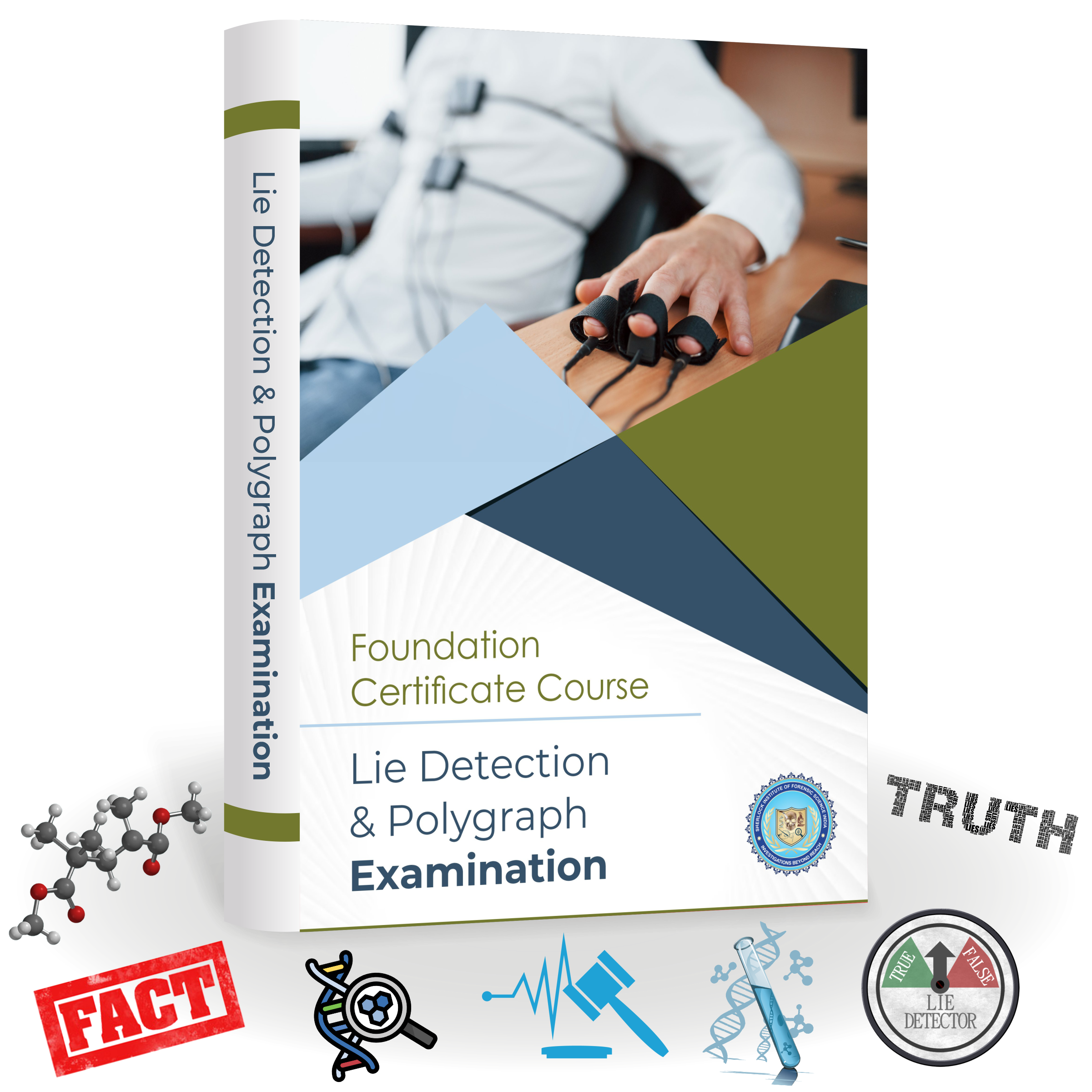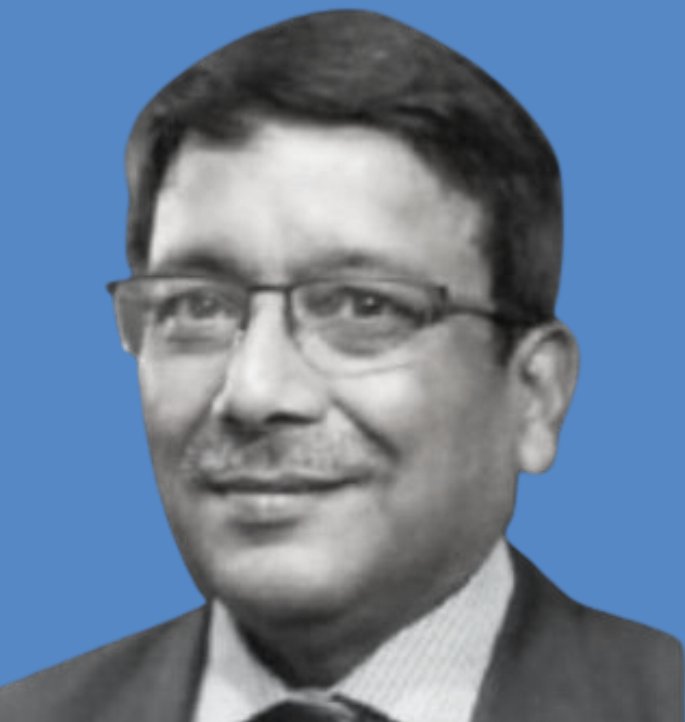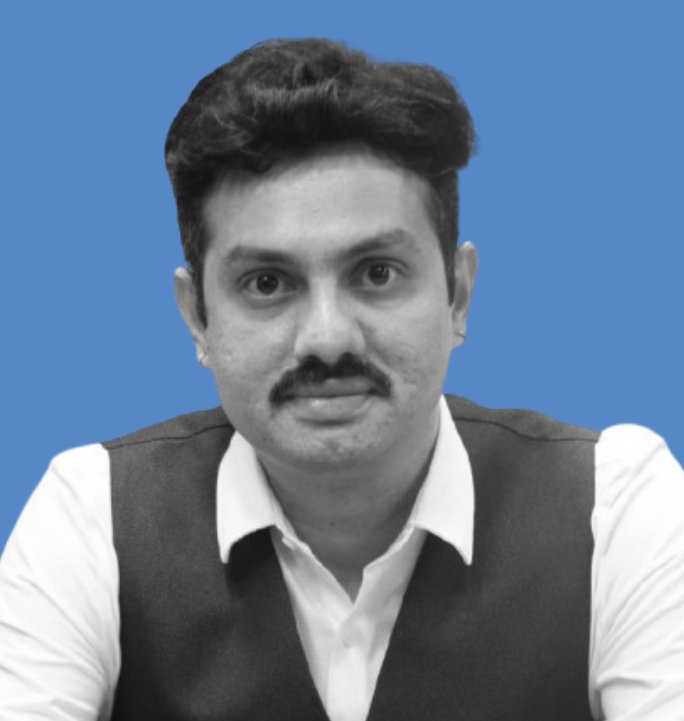The online course was highly interactive. Learning the science behind detecting deception and operating polygraph equipment was both fascinating and practical. Highly recommended!

Certification
Foundation Course Certificate
Mode of Study
100% Online Start now and learn from anywhere
Learning Hours
15 hours of Video Sessions
Learning Medium
English
Learn Forensic at Your Own Pace, Master at Your Own Time!
Unlock Your Potential with Self-Paced Learning!
Learn Anytime, Anywhere
No schedules, no pressure! Study at your convenience
Go at Your Own Speed
Master concepts without rushing or slowing down
Full Access to Course Materials
Revisit lessons whenever you need
Expert-Led Content
Gain industry-relevant skills from top instructors
Perfect for Professionals & Students
Balance learning with your lifestyle
Affordable & Cost-Effective
No travel, no extra expenses, just pure learning!
Earn a Recognized Certification
Boost your resume and career prospects
Join Thousands of Successful Learners Today!
Enroll Now & Take Control of Your Learning Journey!
Lie detection is a crucial part of police investigations and has emerged as a strong tool to understand human behavior. The online Lie Detection and Polygraph Examination Foundation Certificate Course by the Sherlock Institute of Forensic Science provides you with the knowledge and skills to effectively use polygraph technology effectively and interpret physiological responses during questioning.
This pre-recorded course is taught by experienced forensic psychologists and covers several case studies along with topics like understanding of the principles behind polygraphy, how polygraphs work, how to interpret physiological data such as heart rate, blood pressure, and respiratory changes, techniques for enhancing the accuracy of polygraph results, polygraph examination steps, using polygraph in different types of investigations, limitations and challenges of polygraph examinations, and legal implications of using polygraph results in criminal trials. You will also learn about alternative lie detection methods and how to apply these techniques alongside traditional forensic practices to support criminal investigations.
Upon completion of this course, you will receive a certificate that validates your proficiency in lie detection and polygraph examination. This certification can open up career opportunities in law enforcement, private investigation, and legal consulting, as well as provide you with the expertise to become a reliable polygraph examiner. Join us to learn from experts in the field and start your journey toward mastering the art of truth verification today!
Become Proficient to Answer:
- What is the science behind lie detection, and how does it work?
- How does a polygraph work to record changes in an individual’s physical body indices to provide evidence of deception?
- What are some of the signals of truthfulness and falsehood in the course of the polygraph test?
- How do examiners interpret polygraph results, and how are those results analyzed by examiners?
- What are some of the limitations with the tests in detecting lies?
- How do polygraph examiners prepare for the interviews with the candidate or examinee?
- What exactly is the function of using polygraph testing on criminals?
- How good are polygraph tests at telling the truth from a lie?
- What are the ethical concerns and challenges surrounding polygraph examinations?
- In what manner is polygraph testing adopted in the pre-employment screenings and security clearances?
- What are the various techniques of polygraph commonly used for lie detection?
- How is polygraph evidence presented and challenged in court?
Learning Outcomes:
Introduction to Lie Detection: You will gain a deep understanding of the science behind polygraph testing and its role in detecting deception.
Polygraph Techniques and Tools: You will learn how to operate and interpret polygraph equipment to assess physiological responses associated with truthfulness and deception.
Analyzing Physiological Data: You will develop skills in interpreting physiological responses, such as heart rate, blood pressure, and respiration, to determine truthfulness during polygraph tests.
Conducting and Documenting Polygraph Examinations: You will learn the proper procedures for conducting polygraph tests, interviewing subjects, and documenting results.
Legal and Ethical Issues in Polygraph Testing: You will understand the legal and ethical considerations surrounding polygraph examinations, including admissibility in court and consent requirements.
Course Details:
Fee | National: 1770 INR (1500 INR + 18% GST) International: 50 USD |
Duration | 1 Month |
Eligibility | 12th Passed |
Session Timing |
Learn at your own Pace |
Payment Details:
International Student : PayPal: forensicdocument@gmail.com
Account Details for National Student
Bank Name - ICICI BANK
Acc. Name - SIFS INDIA PVT. LTD.
Account No. - 663505500086
Type - Current
IFSC Code - ICIC0000160
Address - ICICI Bank, H-4, Model Town -III, New Delhi - 110009








